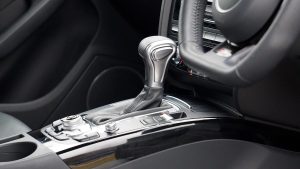Cracking the Code to Audi’s Parking Brake Issue: Driving on Thin Ice
Quick Read: Audi’s parking brake issues, often linked to icy conditions, manifest as difficulty disengaging the brake, unusual noises, or brake system warning lights. To fix this, first, ensure the brake is not frozen to the rotor. Applying gentle heat or de-icing spray can help. If problems persist, consult a professional mechanic to address potential mechanical or electrical malfunctions.
How to Understand Parking Brake Systems
Parking brakes, also known as emergency brakes or handbrakes, are auxiliary braking systems that help prevent the unintentional movement of a parked vehicle. They work independently of the primary braking system to secure the vehicle’s position. Audi, like other car manufacturers, employs different types of parking brake systems to suit its models:
- Mechanical parking brakes: These are traditional hand-operated brakes connected directly to the rear wheels. They rely on a steel cable mechanism to engage the parking brake.
- Electric parking brakes: With the advancement of technology, electric parking brakes have become commonplace in Audi vehicles. These systems use electric motors to apply and release the brake pads or shoes.
- Hybrid parking brakes: Some Audi models combine the features of both mechanical and electric parking brakes, offering a versatile and efficient solution.
The Functioning of Audi’s Parking Brake System

Audi’s parking brake system employs advanced technology to deliver precise and reliable performance. Comprised of various components, including control modules, sensors, actuators, and cables, the system ensures the vehicle remains stationary when the parking brake is engaged.
During activation, the control module receives signals from the parking brake lever or button and sends commands to the brake calipers or drum shoes, effectively applying the necessary force. Conversely, when the parking brake is released, the control module signals the release, allowing the vehicle to move freely.
What is the Symptoms and Signs of an Audi Parking Brake Issue
Recognizing the signs and symptoms of a parking brake malfunction is crucial for timely intervention. Some indicators that Audi owners may experience include:
- Noises or vibrations: Unusual sounds or vibrations while engaging or disengaging the parking brake can signify a potential issue.
- Brake warning lights: The illumination of the brake warning light on the dashboard is a clear indication of a malfunctioning parking brake system.
- Inability to engage or release the parking brake: Difficulty in applying or releasing the parking brake could suggest underlying malfunctions.
What are the Causes of Parking Brake Malfunction in Audis
Audi’s parking brake malfunctions can stem from various root causes. Understanding these factors can help diagnose and address the issues effectively:
- Faulty wiring or electrical connections: Damage to the wiring or poor electrical connections can disrupt the transmission of signals between the control module and brake mechanism.
- Defective control module: A malfunctioning control module may fail to send accurate commands to engage or release the parking brake.
- Mechanical failures in the parking brake mechanism: Components such as cables, calipers, or shoes can become worn or damaged over time, compromising the performance of the parking brake system.
- Software glitches or coding errors: The complex electronic systems in modern cars, including Audis, rely on software programs. Glitches or coding errors can interfere with the proper functioning of the parking brake system.
How to Diagnosing Audi’s Parking Brake Malfunction

Accurate diagnosis is essential for efficiently resolving Audi’s parking brake malfunctions. While professional technicians possess a range of diagnostic tools and techniques, it is important to understand the distinction between professional and DIY diagnostics. Professional diagnostics involve utilizing specialized equipment, such as scan tools, to identify specific error codes and conduct thorough system checks. DIY diagnostics, on the other hand, can be performed using basic tools and online resources, but they may not provide the same level of accuracy as professional methods.
Regardless of the chosen diagnostic approach, accurate diagnosis is paramount to avoid unnecessary repairs and expenses while ensuring the safety of the vehicle and its occupants.
Common Fixes for Audi’s Parking Brake Malfunction
Targeted remedies based on the identified problem are needed to fix the parking brake malfunction in Audi vehicles. Typical fixes include:
- Replacing damaged wire or weak electrical connections: Damaged wiring or weak electrical connections can be repaired or replaced to get the parking brake system working again.
- The control module may need to be repaired or replaced if it is determined to be malfunctioning in order to restore accurate command transmission.
- Repairing or replacing worn-out brake mechanism parts, such as cables, calipers, or shoes, can fix mechanical issues with the parking brake mechanism.
- Software updates or control unit reprogramming: In situations when coding errors or software malfunctions are to blame, updating the software or reprogramming the control unit can solve the problems.
Preventive Maintenance for Audi’s Parking Brake

Prevention is always better than cure when it comes to parking brake malfunctions. Regular maintenance of Audi’s parking brake system can go a long way in avoiding future issues. Here are some essential preventive maintenance practices:
- Regular inspection and cleaning: Periodic inspections of the parking brake system, including its components, cables, and connections, can help detect any signs of wear or damage. Cleaning the system, removing debris and dirt, also enhances its longevity.
- Lubrication of key components: Applying appropriate lubricants to critical parts of the parking brake system, such as cables and caliper mechanisms, helps maintain smooth operation.
- Replacing brake pads and rotors as needed: Worn-out brake pads or damaged rotors can affect the performance of the parking brake system. Regular inspection and timely replacement ensure optimal functioning.
- Software updates and code corrections: Keeping the parked brake system’s software up to date, along with resolving any coding errors, can help prevent malfunctions caused by software glitches.
How to Troubleshoot Audi’s Parking Brake Malfunction
Troubleshooting Audi’s parking brake malfunction can be approached systematically by following these step-by-step guidelines:
- Identify potential causes through diagnostic tools: Whether using professional or DIY diagnostic tools, identifying error codes and system checks can help pinpoint potential causes.
- Follow a structured approach: Begin by inspecting visible components, such as wiring and connections, for damage or wear. Then proceed to check the control modules and other relevant areas to detect any malfunctions.
- Document findings and consult resources: Make note of the observed symptoms and potential causes. Consult repair manuals, online resources, or seek advice from qualified professionals to narrow down the issue.
- Perform necessary repairs or replacements: Based on the findings, carry out the appropriate repairs, replacements, or software updates as required. Ensure that all actions are conducted with precision and adherence to safety guidelines.
It is important to exercise caution during troubleshooting to avoid misdiagnosis or exacerbating the issue.
Seeking Professional Help for Audi’s Parking Brake Malfunction

While some parking brake malfunctions can be resolved through DIY methods, there are instances when seeking professional assistance becomes necessary. Here are some indicators that suggest the need for consulting a certified Audi technician:
- Persistent or recurring malfunctions: If the parking brake system continues to exhibit issues despite attempted repairs, professional intervention may be required to address the underlying problems comprehensively.
- Complex diagnostic requirements: Certain malfunctions may require advanced diagnostic tools or expertise that surpasses the capabilities of DIY enthusiasts.
- Safety concerns: Malfunctioning parking brake systems pose safety risks. If there is any doubt regarding the safety of the vehicle, it is advisable to consult a professional technician promptly.
The benefits of professional diagnosis and repairs include accurate identification of issues, reliable solutions, and greater peace of mind.
Audi’s Parking Brake Recall History
Audi, like any automaker, has experienced parking brake-related recalls in the past. Understanding the lessons learned from previous incidents and Audi’s commitment to resolving such issues helps shed light on the company’s dedication to customer safety. While it is beyond the scope of this article to discuss specific recall incidents, Audi owners are encouraged to stay informed about any parking brake-related recalls through the company’s official channels.
Safety Concerns and Consequences of Ignoring Parking Brake Malfunction
Ignoring a malfunctioning parking brake can have serious consequences for both the vehicle and its occupants. Some potential risks and hazards associated with a faulty parking brake include:
- Vehicle rollaway: A malfunctioning parking brake can result in unintended vehicle movement, posing a threat to people and property.
- Increased braking distances: Inadequate parking brake functionality can affect overall braking performance, leading to extended braking distances in critical situations.
- Legal implications: Driving with a malfunctioning parking brake is not only unsafe but may also violate traffic laws. It is essential to rectify any issues promptly to comply with legal requirements.
Immediate attention and repairs are necessary to mitigate these risks and maintain optimal safety standards.
Expert Interviews: Insights from Audi Technicians
To provide first-hand insights, we interviewed experienced Audi technicians who have encountered common parking brake issues. Their perspectives shed light on the complexity of the system and offer tips for Audi owners to prevent or address parking brake malfunctions. Here are some key takeaways from their interviews:
- Regular maintenance and inspection are essential to catching potential issues early on and avoiding costly repairs.
- Following manufacturer-recommended maintenance schedules and procedures helps ensure the longevity and reliability of the parking brake system.
- Seeking professional assistance when in doubt can save time, money, and potentially prevent accidents caused by inadequate repairs.
Customer Experiences with Audi’s Parking Brake Malfunction
Real-life stories from Audi owners provide valuable insights into parking brake malfunctions and how they were addressed. These firsthand accounts offer lessons learned and recommendations for other Audi owners facing similar issues. Sharing these experiences and seeking support within the Audi community can foster a sense of camaraderie and provide additional guidance.
Solving Audi’s Parking Brake Malfunction: Case Studies
Taking an in-depth look at specific Audi models and their parking brake malfunctions, we analyze the solutions provided by Audi and independent repair shops. Comparisons and the results achieved in each case study highlight the variations in outcomes and explore potential best practices for future repairs.
Future Developments in Parking Brake Technology
As technology continues to evolve, parking brake systems are no exception. This section presents an overview of emerging advancements in parking brake systems and Audi’s efforts to improve this vital component. Predictions for the future of parking brake systems offer insights into what Audi owners can expect in terms of enhanced safety, performance, and innovation.
Summary: Understanding and Addressing Audi’s Parking Brake Malfunction
In summary, Audi’s parking brake malfunction requires careful attention and prompt resolution. By understanding the functioning of the parking brake system, recognizing signs of malfunction, and exploring potential causes and fixes, Audi owners can approach parking brake issues with confidence. Regular maintenance, accurate diagnosis, and professional assistance, when necessary, contribute to safer driving experiences and peace of mind for Audi owners.
FAQs: Answers to Common Questions about Audi’s Parking Brake Malfunction
To address common queries, here are answers to frequently asked questions about Audi’s parking brake malfunction:
- FAQ 1: How can I differentiate between a normal parking brake engagement and a malfunction?
- Look for warning signs such as unusual noises, vibrations, or difficulty in engaging or releasing the parking brake. If in doubt, consult a professional technician.
- FAQ 2: Can I drive my Audi with a malfunctioning parking brake?
- It is strongly advised not to drive with a malfunctioning parking brake. Doing so can result in accidents or violations of traffic laws.
- FAQ 3: Are parking brake repairs covered under Audi’s warranty?
- Warranty coverage for parking brake repairs depends on various factors, including the age of the vehicle and the specific warranty terms. Consult your Audi dealership or warranty documentation for details.
- FAQ 4: How often should I have my Audi’s parking brake system inspected?
- Audi recommends regular inspections during routine maintenance visits. However, specific intervals may vary depending on the vehicle’s age and driving conditions. Referring to your owner’s manual is recommended.
- FAQ 5: Can I fix a parking brake malfunction myself?
- Some minor malfunctions can be resolved through DIY methods. However, for more complex or safety-critical issues, it is advisable to consult a certified Audi technician.
Conclusion
Promptly addressing Audi’s parking brake malfunction is crucial for maintaining vehicle safety and performance. By understanding the intricacies of parking brake systems, recognizing signs of malfunction, and engaging in preventive maintenance, Audi owners can take proactive measures to ensure their vehicles’ parking brake systems function optimally. Remember, safety should always be a priority, and seeking professional assistance when necessary is crucial for resolving complex issues effectively.







